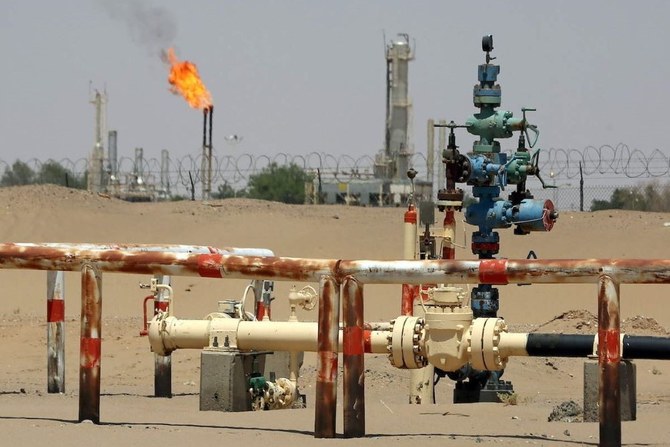AL-MUKALLAH: The Houthis have stepped up their economic war against the Yemen government by banning gas tankers from government-controlled Marib from entering their territory in a bid to shut down a significant revenue source.
Government officials and the government’s gas company said the Houthis have seized hundreds of gas tanker trucks and stopped other loaded vehicles from entering their areas in Sanaa and Jouf, even as densely populated areas under their control experience severe shortages of cooking gas.
The Iran-backed militia has blocked cheap gas imports from Marib in favor of more expensive gas imported into Yemen through Hodeidah port, the government said.
Yemen’s Information Minister Muammar Al-Eryani said that the Houthis replaced the local cooking gas with more expensive imports from Iran, selling it to people in their areas at double the price, a move adds to the financial burdens of the locals but swells militia coffers.
“These criminal practices are an extension of the policies of poverty and starvation pursued by the terrorist Houthi militia against its citizens since its coup against the government, tripling their burdens, multiplying its war profits, and enriching its leaders,” the Yemeni minister said on Twitter.
He repeated accusations directed at Iran of fueling instability in Yemen, despite the Tehran regime’s recent vow to support peace efforts to end the war.
“The smuggling of Iranian crude and gas to the Houthi militia through the port of Hodeidah confirms that the Tehran regime continues to support and finance the militia,” Al-Eryani said.
The Yemen Oil and Gas Corp. in Marib said that the Houthis seized 1,108 tanker trucks carrying 28,333 tons of gas heading from Marib to Houthi territories in April alone.
Yemen’s government sells most of the cooking gas from Marib fields to people living in Houthi-controlled areas, generating billions of Yemeni riyals per month in revenue.
As the Houthis suppress opposition and protest in their areas, people have taken to social media to express anger at the increase in cooking prices, complaining that gas is distributed only by Houthi representatives in their regions.
The Yemeni government said that the Houthis used UN-brokered truce facilities to import fuel from Iran through Hodeidah.
The Houthi restriction on gas from Marib is the latest in a series of actions aimed at squeezing government funds.
This week, the Houthis barred a dozen lorries carrying flour from government-controlled Aden from entering their areas via a checkpoint in Taiz’s Al-Raheda, ignoring warnings from traders and locals that the critically needed commodities would be ruined, potentially costing traders millions of riyals.
The Houthis say that traders should import products through Hodeidah port, a move designed to push traders out of government-controlled areas such as Aden.
Oil exports, the government’s main source of revenue, have been stopped since last year when the Houthis launched drone and missile strikes on oil installations in the government-controlled provinces of Shabwa and Hadramout.
The Houthi economic measures have prompted Yemeni Prime Minister Maeen Abdul Malik Saeed to call on international donors to help his government carry out its economic goals.
During a meeting with the US ambassador to Yemen on Wednesday, the Yemeni leader said that Houthi strikes on oil facilities have had “dangerous repercussions” on the government’s efforts to stabilize the economy and have exacerbated the country’s already dire humanitarian crisis.
Experts say that the Houthis are also attempting to develop new revenue streams.
“This comes as a series of measures the Houthis have taken since the beginning of the truce last year to create new funding streams for themselves while depriving the government of important revenues,” Nadwa Al-Dawsari, a Yemeni conflict analyst, told Arab News.


























